Journal for the Study of the Old Testament: Studies of the Torah, 6 vols. (Library of Hebrew Bible/Old Testament Studies | LHBOTS)
Digital Logos Edition
Overview
The Studies of the Torah collection offers the scholar explorations of issues pertaining to the first five books of the Old Testament. Written with the academic in mind, the six volumes capture a variety of fascinating thoughts on these foundational books. Topics include Levitical rituals and their postmodern counterparts, Abraham’s connection to the post-flood blessing to “be fruitful and multiply,” legal and judicial terminology in Genesis, the parallel narratives in Deuteronomy and the rest of the Torah, and Structuralist approaches to Israelite food rules.

The Journal for the Study of the Old Testament Supplement (renamed the Library of Hebrew Bible/Old Testament Studies in 2005) is a premier book series that offers cutting-edge work for a readership of scholars, teachers in the field of Hebrew Bible/Old Testament studies, postgraduate students and advanced undergraduates. All the diverse aspects of Old Testament study are represented and promoted in the series, including innovative work from historical perspectives, studies using social-scientific and literary theory, and developing theological, cultural and contextual approaches.
The series was launched by Sheffield Academic Press in 1976, and is published regularly by T & T Clark International as The Library of Hebrew Bible/Old Testament Studies. This world-class religious academic publishing program is both interdisciplinary and international in scope, incorporating Sheffield Academic Press, T & T Clark and Trinity Press International.
- Title: Studies of the Torah
- Authors: William John Lyons, James K. Bruckner, Carol Kaminski, Wesley J. Bergen, John E. Harvey, Seth Kunin
- Publishers: Sheffield Academic Press, T&T Clark
- Publication Date: 2001–2005
- Volumes: 6
- Series: Library of Hebrew Bible/Old Testament Studies | LHBOTS
- Pages: 1,300
- Format: Digital › Logos Research Edition
- Resource ID: {14F53CDD-6D8B-4A58-B7D4-9FA05B45C25C}
- Implied Law in the Abraham Narrative: A Literary and Theological Analysis
- Canon and Exegesis: Canonical Praxis and the Sodom Narrative
- From Noah to Israel: Realization of the Primaeval Blessing After the Flood
- Reading Ritual: Leviticus in Postmodern Culture
- Retelling the Torah: The Deuternomistic Historian's Use of Tetrateuchal Narratives
- We Think What We Eat: Structuralist Analysis of Israelite Food Rules and Other Mythological and Cultural Domains
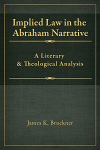
This volume is a study of the significance of implied law in the Abraham narrative. Bruckner examines legal and juridical terminology in the text, with a close reading of legal referents in Genesis 18.16-20.18. He demonstrates that the literary and theological context of implied law in the narrative is creational, since the implied cosmology is based in Creator-created relationships, and the narrative referents are prior to the Sinai covenant. The narrative's canonical position is an ipso jure argument for the operation of law from the beginning of the ancestral community. The study suggests trajectories for further research in reading law within narrative texts, pentateuchal studies, and Old Testament ethics.
James Bruckner is Assistant Professor of Old Testament, North Park University, Chicago, Illinois.
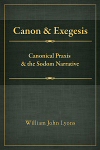
Previous attempts to critique the canonical approach of Brevard Childs have remained largely theoretical in nature. One of the weaknesses of canonical criticism, then, is its failure to have generated new readings of extended biblical passages. Reviewing the hermeneutics and the praxis of Childs' approach, Lyons then turns to the Sodom narrative (Gen 18-19) as a test of a practical exegesis according to Childs' principles, and then to reflect critically upon the reading experience generated. Surprisingly, the canonical reading produced is a wholly new one, centered on the complex, irreducible - even contradictory - request of Abraham for Yahweh to do justice (18:23-25).
William John Lyons teaches New Testament in the Department of Theology and Religious Studies at the University of Bristol, UK.
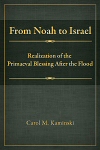
The primeval blessing, 'Be fruitful and multiply, and fill the earth,' first announced to humankind in Genesis 1.28 is renewed to Noah and his sons after the flood in Genesis 9.1. There is widespread scholarly consensus that the ensuing dispersion in Genesis 10.1-32 and 11.1-9 is the means by which the creation blessing is fulfilled.
Kaminski argues that the primeval blessing is not fulfilled in the Table of Nations and that Yahweh's scattering Noah's descendants in the Babel story does not contribute positively to the creation theme. Rather, the creation blessing is being taken up in the primary line of Shem (Genesis 11.10-26), which leads directly to Abraham.
She further suggests that divine grace is not absent after the Babel judgment, as is commonly assumed, but is at work in the Shemite genealogy. She argues that the primeval blessing, which is unfulfilled in the primeval history, is taken up by Abraham and his descendants by means of a divine promise. While the blessing is in the process of being realized in the patriarchal narratives, it is not fulfilled. The multiplication theme is resumed, however, in Exodus 1.7, which describes Israel's proliferation in Egypt. This is the first indication that the creation blessing is fulfilled. Realization of the primeval blessing progresses after the flood, therefore, from Noah to Israel. Yet God's blessing on Israel is not for their sake alone - it is the means through which the divine intention for creation will be restored to the world.
Carol M. Kaminski (Ph.D., Cambridge) is assistant professor of Old Testament at Gordon-Conwell Theological Seminary, Massachusetts, USA.
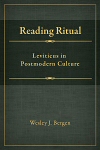
This book draws on a variety of disciplines to undertake a unique analysis of Leviticus 1-7. Rather than studying the rituals prescribed in Leviticus as arcane historical/theological texts of little interest to the modern reader or as examples of primitive rituals that have no parallel in Western society, this book provides many points of contact between animal sacrifice rituals and various parts of post-modern society.
Modern rituals such as Monday Night Football, eating fast food, sending sons and daughters off to war, and even the rituals of modern academia are contrasted with the text of Leviticus. In addition, responses to Leviticus among modern African Christians and in the early church are used to draw out further understandings of how the language and practice of sacrifice still shapes the lives of people.
This study takes a consciously Christian perspective on Leviticus. Leviticus is assumed to be an ongoing part of the Christian Bible. The usual Christian response to Leviticus is to ignore it or to claim that all sacrifice has now been superseded by the sacrifice of Jesus. This study refutes those simplistic assertions, and attempts to reassert the place of Leviticus as a source for Christian self-understanding.
Wesley J. Bergen is Visiting Assistant Professor, Department of Religion, Wichita State University, Wichita, Kansas.
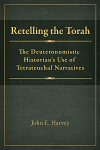
The Deuteronomistic Historian patterned more than four dozen of his narratives after those in Genesis-Numbers. The stories that make up Genesis-Numbers were indelibly impressed on the Deuteronomistic Historian’s mind, to such an extent that in Deuteronomy-Kings he tells the stories of the nation through the lens of Genesis-Numbers.
John Harvey discusses the eight criteria which may be used as evidence that the given stories in Deuteronomy-Kings were based on those in Genesis-Numbers. Unified accounts in the Deuteronomistic History, for instance, often share striking parallels with two or more redactional layers of their corresponding accounts in Genesis-Numbers, showing that the given accounts in the Deuteronomistic History were written after the corresponding accounts in Genesis-Numbers had been written.
Furthermore, the Deuteronomistic Historian calls the reader’s attention to accounts in Genesis-Numbers by explicitly citing and referring to them, by using personal names, and by drawing thematic and verbal parallels. Retelling the Torah, the first book to focus on these parallel narratives, contains far-reaching implications for Hebrew Bible scholarship.
John E. Harvey has a Ph.D in Old Testament from St. Michael's University College in Toronto, Ontario. He is the registrar of the Thorneloe University School of Theology, and is a deacon in the Anglican Church of Canada.
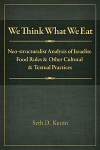
In We Think What We Eat, Seth Kunin presents both an appreciation and critique of Professor Mary Douglas' classical work on Israelite food rules. He places her arguments into the context of related anthropological approaches and suggests a new interpretation of the food rules system based on a rigorous application of structuralist theory.
Kunin then goes on to extend this analysis to other areas of Israelite culture. Through detailed analysis of texts from Genesis, Exodus and Judges, he demonstrates that the same structural pattern found in the first section in respect of ritual is also characteristic of the mythological material.
This section of the book also takes up the issue of structural transformation. It examines the processes found as the myths move from the Israelite context to that of the rabbis, the authors of the New Testament and of the Book of Mormon. The arguments presented demonstrate that as the myths move from culture to culture diachronically and geographically while the same mythological elements are retained they are restructured and organized based on the structural needs of the new cultural context.
Kunin is also interested in issues of structuralist theory. Thus, he addresses issues related to the processes of structural transformation - suggesting processes that lead to changes in structural emphasis and those relating to more significant transformations.
Seth D. Kunin is the Director of Research in the College of Arts and Social Sciences of the University of Aberdeen. He received his PhD in Anthropology from the University of Cambridge.
This title is included in the following collections
You can save when you purchase this product as part of a collection.
Logos 8 Messianic Jewish Diamo...
$2,999.99$2,999.99Logos 9 Messianic Jewish Diamo...
$2,999.99$2,999.992025 Messianic Jewish Portfoli...
$4,749.99$3,562.49Logos 8 Anglican Portfolio Leg...
$4,749.99$4,749.99
- $4,999.99
- $11,399.99
- $23,999.99$17,999.99
- $21,749.99
- $24,999.99
Reviews
0 ratings
Kip Bauer
8/9/2023
To find more information on the individual titles included, click on the author names just below the collection title above. Each author only has a few titles that will appear from the name search, and the uniform cover design of the volumes from this set will help you distinguish them.
Vladimir Alejo
8/9/2023
I also would like to know about the individual titles include in the price of 46,71 usdJosé Carlos Martínez Cristóbal
8/9/2023
It would be very helpful to know what the individual titles are in this collection.